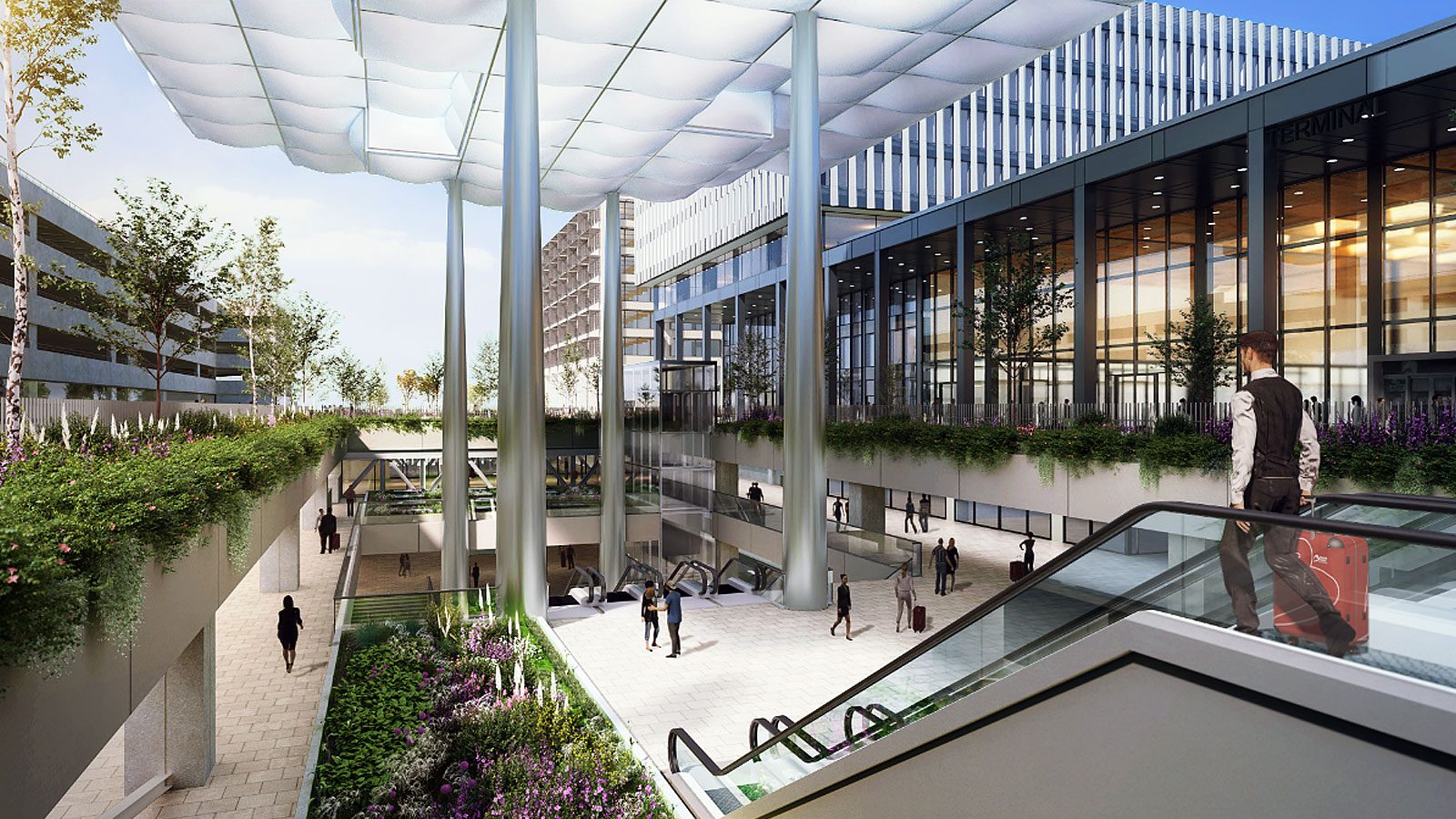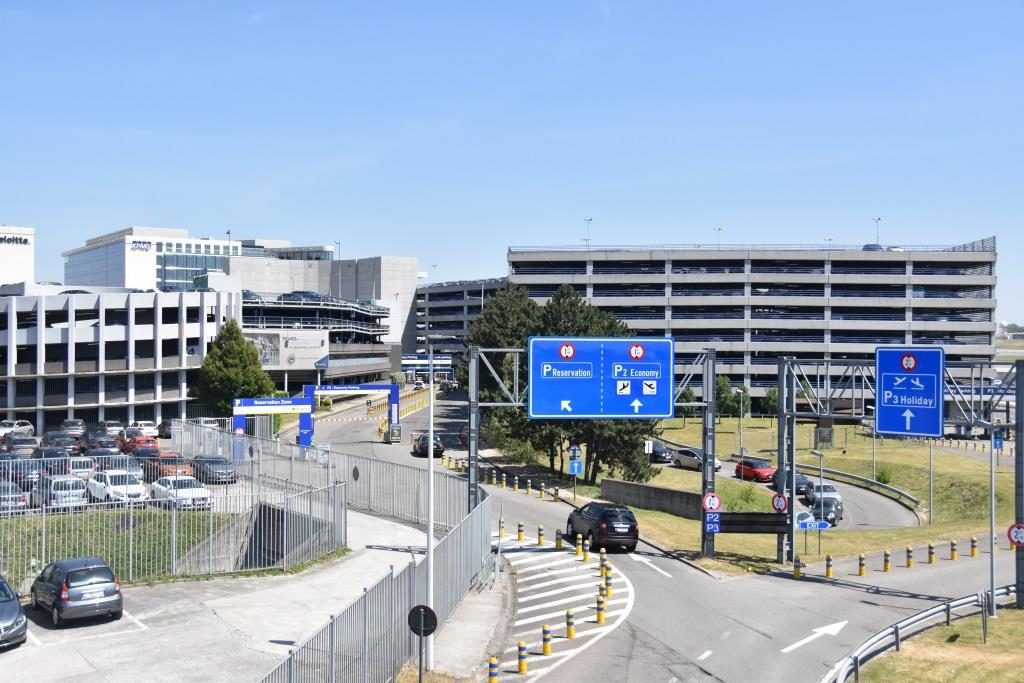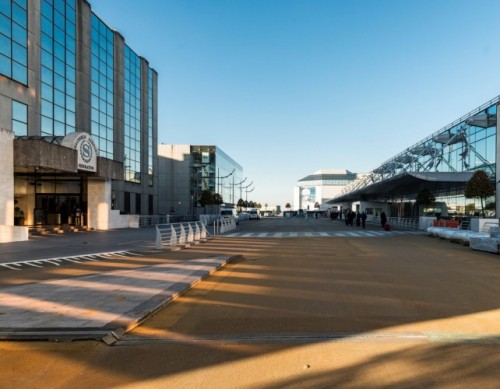Brussels Airport is set to undergo a major transformation with plans to build a tram link, a hotel, and a park as part of a long-term infrastructure upgrade, the airport’s most ambitious project in over 30 years. Scheduled for full completion by 2032, the developments are designed to enhance the passenger experience, support sustainable travel, and prepare for future growth in air traffic.
The project includes the creation of a new intermodal hub that will seamlessly connect multiple modes of transport, including planes, trains, buses, taxis, cars, bikes, and pedestrians. This hub will also become the terminus of a new airport tram line, making public transit access easier and more efficient than ever. Alongside this, cycling infrastructure will be improved to encourage eco-friendly transport to and from the airport.
A green boulevard with a landscaped park is also part of the plan. The new boulevard will be shared by the tram, bikes, and cars, offering a more relaxed and scenic approach to the airport. These features are all part of a broader goal to promote sustainable mobility and reduce reliance on cars.

As part of the project, the existing infrastructure will be reimagined. The airport currently relies on a single central axis that connects the train station, bus terminal, taxi stand, and departure hall. However, this area is reaching full capacity. The new layout will distribute passenger flow across multiple levels, easing congestion and improving navigation.
One of the major upgrades will be the construction of a brand-new drop-off zone at the departure level. Located behind the Sheraton hotel, this area will separate drop-off traffic from other vehicle flows, helping to streamline movement and reduce delays.
Brussels Airport will also see the expansion of both its arrival and departure halls. These larger spaces will offer better connections to public transport and provide more room for check-in, passenger flow, and mobility services. This update is particularly important during peak times, when the current layout often becomes overcrowded.
Another key highlight of the project is the construction of a four-star hotel with over 300 rooms. This will be built next to the existing Sheraton and give travelers more lodging choices close to the terminal.
Sustainability is central to the airport’s vision. The new developments will use eco-friendly materials, make optimal use of natural light, and incorporate technologies like heat pumps, solar panels, and underground geothermal storage. Water infiltration systems will also help manage rainwater in an environmentally responsible way.
Construction of the tram link, intermodal hub, hotel, and terminal expansions is expected to begin by late 2026. The new drop-off zone is planned to break ground by the end of this year, with its completion targeted for 2026.
By 2032, Brussels Airport will offer a modern, greener, and more accessible gateway to Belgium and beyond.






